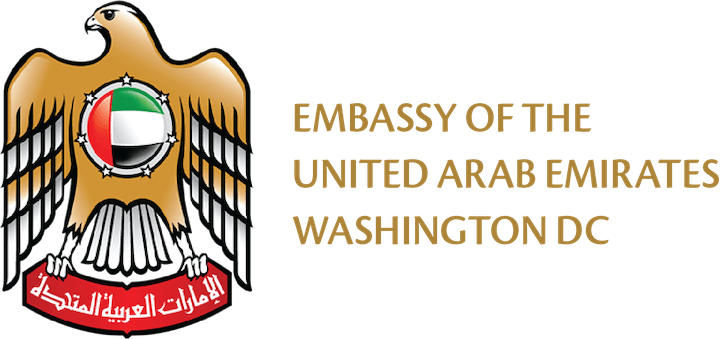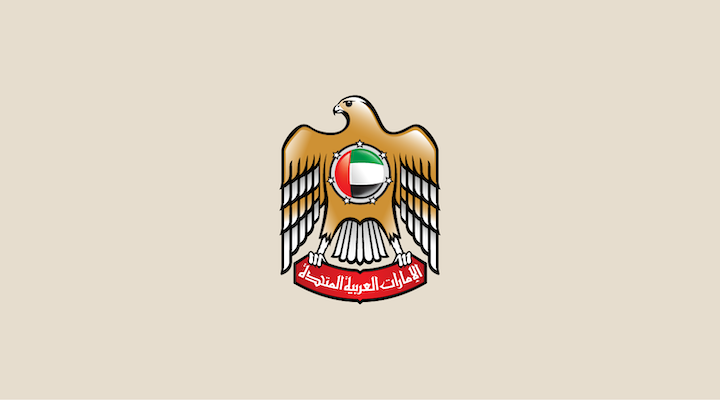UAE and US ‘joining forces to lead world in climate agenda’, says energy envoy
November 9, 2022
The UAE and the US can work together to accelerate the world’s shift away from a reliance on oil and gas while at the same time boosting sustainable economic growth, the US energy envoy Amos Hochstein said on Tuesday.
The US special envoy and presidential co-ordinator for international energy affairs on Tuesday signed in Abu Dhabi — on behalf of the US — a strategic partnership with the UAE to invest $100 billion to produce 100 gigawatts of clean energy by 2035.
At the oil and gas conference and exhibition Adipec, Mr Hochstein called it “a breakthrough agreement”.
“The US and UAE have always been allies and have a strong relationship in security, in defence, in economics,” Mr Hochstein told the Business Extra podcast.
“Now we are joining forces to lead the world in adaptation and implementation of the climate agenda; in renewable energy, electric vehicles, cleaner nuclear power that is maybe more deployable, advancing new technologies, accelerating [all] these things. And we're extremely excited.”
Mr Hochstein said the UAE's track record makes it the ideal partner.
“An oil country develops Masdar [City] and is the world’s first hydrocarbon country to understand ‘don't fight the future … don't fight progress’, which was what everybody else was doing, saying, ‘Oh, my God, we got to kill renewables, because they're going to kill us’ and instead say ‘don't kill it, join it’,” he said.
“If the UAE was able to lead the oil and gas era, why can't it lead the next energy era? We're the largest producer of hydrocarbons in the world. We're the largest producer of oil and gas. And we feel the same way.
“So, the UAE and the United States have a lot in common … we have people that want to get things done … And that's what I think we can do together.”
US and Opec+ relations
Mr Hochstein, who also served in the administration of former president Barack Obama, said friction between the US and Opec+, a supergroup of oil producers, was a result of today's economic realities.
President Joe Biden has expressed disappointment over a decision by Opec+ producers to cut oil output while the US economy is under pressure, with inflation high and energy prices rising. Opec+ members, including Saudi Arabia, have said the move was motivated by forecasts of a global economic slowdown and falling demand for crude as a result.
“We have to look at the short term, because we're leaders of countries, and we have people who are paying for gasoline today, not in 10 years from now,” Mr Hochstein said.
“And they have to take whatever is in their paycheque and decide how to buy medicine and food and gasoline.
“When prices of gasoline go up [or] the price of oil goes up, then the price of food goes up because we don't live in a farm to table society. We live in a farm, to truck, to table or sometimes farm to truck, to ship, to truck, to table.
“That's a lot of gasoline and diesel that is going into the price of your food. So, when people walk into a supermarket in London, or New York, or Dubai, or anywhere around the world … they're paying for a barrel of oil. That's just a reality.”
More investment is needed to avoid price shocks, he added.
“President Biden … said companies need to invest today, in oil and gas, they need to invest in more production. They're having record profits while people are suffering,” Mr Hochstein said.
“Now, the record profits are because we have a war [in Ukraine] and we're coming out of Covid, so prices are really high … We don't want them to not make a profit … make the profit, but invest in more oil and gas … While the company is investing in oil and gas, we have to invest far more in bringing about the future.”
Mr Hochstein stressed that the future global energy system must be more diversified and geopolitics should be removed from the equation.
“How did we get into this Opec … Opec+ … when you have a small number of countries that are producers, and you have a less diversified system? What's happening today for renewables is not just about money,” he said.
“If I think about batteries, and solar and wind … where is all that coming from? Who owns it? Who makes it? How is it made? A battery has … cobalt and copper and graphite and nickel? … Are they mining it cleanly?
“We need to have all of these things done around the world, not just in one place, in the United States, in Australia, in Europe, in Africa … all over the world, a diversified system so that the renewable energy future, the green energy future, is not the same as a 20th century oil and gas business.
“Take away the geopolitics of this. Let this be developed everywhere, let the competition be about who can do it the cleanest, healthiest and [in the] most cost-efficient way.”
Europe at 'mercy of God' this winter
More than a year ago, Mr Hochstein warned European governments about their exposure to Russian gas supplies. Now the continent is facing a winter without it after the fallout from Russia's invasion of Ukraine.
Mr Hochstein said the US would support Europe with increased LNG exports.
“We're now at the mercy of God — if there's an average winter or a very cold winter,” Mr Hochstein said. “If it's a very cold winter, we're going to have a hard time. There's no escaping that. We're going to do everything we can.
“But we can't simply replace all the Russian gas … What we really want is the war to end.”
There are lessons to be learnt today, Mr Hochstein said.
“It's another reminder why we need to diversify our sources, why we need to accelerate. But while we do that, don't replace your singular dependence on Russian gas with your singular dependence on one country, for your electric vehicle batteries and for your components for your renewable energy,” he said.
“Every country in Europe wishes they made a fraction of the investment they're making now just to keep Ukraine safe, in infrastructure, so that they don't have to pay the price of the leverage from Moscow.”
Historic Lebanon-Israel maritime border agreement
“It was really emotional, actually” to have been present when Lebanon and Israel officially signed a maritime deal to demarcate their border in the Mediterranean, Mr Hochstein said.
The agreement promises to pave the way for Lebanon to begin to access its potential natural gas windfall. Mr Hochstein helped to broker the deal that was negotiated through indirect talks, as Lebanon and Israel do not have diplomatic relations.
“So, being able to be there in that tent with the delegations there and bringing to an end the dispute over the maritime [border] was remarkable … it just felt like this is what I think the United States role can be and should be in the region,” he said.
Mr Hochstein has been working on energy relations in the East Mediterranean for more than a decade.
He witnessed how “the energy developments offshore Israel, offshore Egypt, offshore Cyprus were really an opportunity for not just energy, but for broader integration of the region into itself and doing that through physical integration, building pipelines, building opportunities”.
“I really believed in it and we were able to do so much,” he said.
“It transformed the Israel-Egypt relationship and transformed the Israel-Cyprus and Israel-Greece relationship, and really had massive implications. It even had unbelievable impact on the Jordanian economy.”
However, Lebanon joining these East Mediterranean developments seemed impossible for a long time, Mr Hochstein said.
“So, the imbalance between Israel and Lebanon, where Israel has developed so much gas, transformed their economy … and while everybody in the world is paying enormous prices, right, and look at Europe right now … while Israel is paying 4, 5, 10 per cent [of the cost in Europe]. But Lebanon is not. It's at two hours of electricity per day,” he said.
Mr Hochstein believes the hope of greater access to energy can transform Lebanon’s prospects.
“More often than not, people think of energy as tools of war, tools of conflict, or … tools of coercion, leverage — if I sell to you, I own you. And that has been the case in Europe, in Asia, South China Sea … and in the Middle East,” he said.
Turning the tables on this paradigm has been Mr Hochstein's aim for 11 years now.
“If it could be a tool of coercion, why can’t it be a tool of co-operation … if you can use it to integrate countries and economies, then you have something to lose, then when it goes away … going to conflict now has a cost,” he said.
“I believe at the end of the day, fundamentally, if you have stability, and security and prosperity, you will not have conflicts.”




